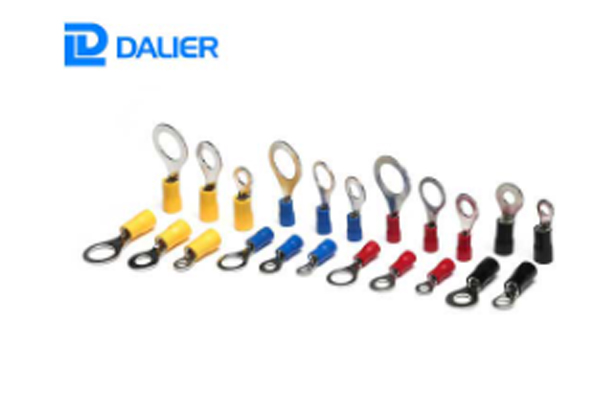what does it mean crimps insulated and noninsulated terminals
Crimping terminals is a crucial process in electrical wiring and connections. Terminals are used to establish secure and reliable connections between wires and various electrical components such as switches, relays, and circuit boards. When we talk about crimping insulated and non-insulated terminals, we are referring to two different types of terminals with distinct characteristics.
Non-insulated terminals are typically made of metal, usually copper or brass. They are designed to provide a direct electrical connection between wires. The crimping process for non-insulated terminals involves using a crimping tool to compress the terminal onto the wire, creating a tight mechanical bond. This bond ensures good electrical conductivity and helps prevent the wire from loosening or disconnecting. Non-insulated terminals are often used in applications where insulation is not a primary concern, such as in some industrial machinery or in areas where the terminals are protected by other means, like being housed within an enclosure.
On the other hand, insulated terminals have an added layer of insulation, usually made of plastic or rubber. This insulation serves multiple purposes. It provides protection against electrical shock, preventing accidental contact with the live terminal. It also helps to protect the connection from environmental factors such as moisture, dust, and corrosion. Now, let's consider Vinyl-Insulated Terminals.
A: Vinyl-Insulated Terminals are a specific type of insulated terminal where the insulation material is vinyl. Vinyl is a popular choice due to its excellent electrical insulation properties, flexibility, and resistance to a wide range of environmental conditions. It can withstand moderate heat, moisture, and abrasion, making it suitable for many different applications.
Q: Why would one choose Vinyl-Insulated Terminals over other insulated terminals?
A: Vinyl-Insulated Terminals offer several advantages. Their flexibility allows for easier installation in tight spaces or when wires need to be bent or routed in a particular way. The vinyl insulation provides a reliable barrier against electrical leakage and short circuits. Additionally, vinyl is relatively inexpensive compared to some other high-performance insulation materials, making Vinyl-Insulated Terminals a cost-effective choice for many electrical projects. They are commonly used in automotive wiring, household electrical systems, and in some low-voltage industrial applications.
Q: How is the crimping process for Vinyl-Insulated Terminals different from non-insulated terminals?
A: The crimping process for Vinyl-Insulated Terminals is similar in that a crimping tool is used to compress the terminal onto the wire. However, extra care must be taken not to damage the insulation during the crimping process. The crimping tool should be adjusted to the appropriate size and pressure to ensure a proper connection without cutting or cracking the vinyl insulation. This is crucial to maintain the integrity of the insulation and the overall electrical connection.
In conclusion, understanding the difference between crimping insulated and non-insulated terminals, and specifically the features and applications of Vinyl-Insulated Terminals, is essential for anyone involved in electrical work. Whether it's for a simple DIY electrical project at home or a more complex industrial installation, choosing the right type of terminal and performing the crimping process correctly can ensure the safety and reliability of the electrical system.





